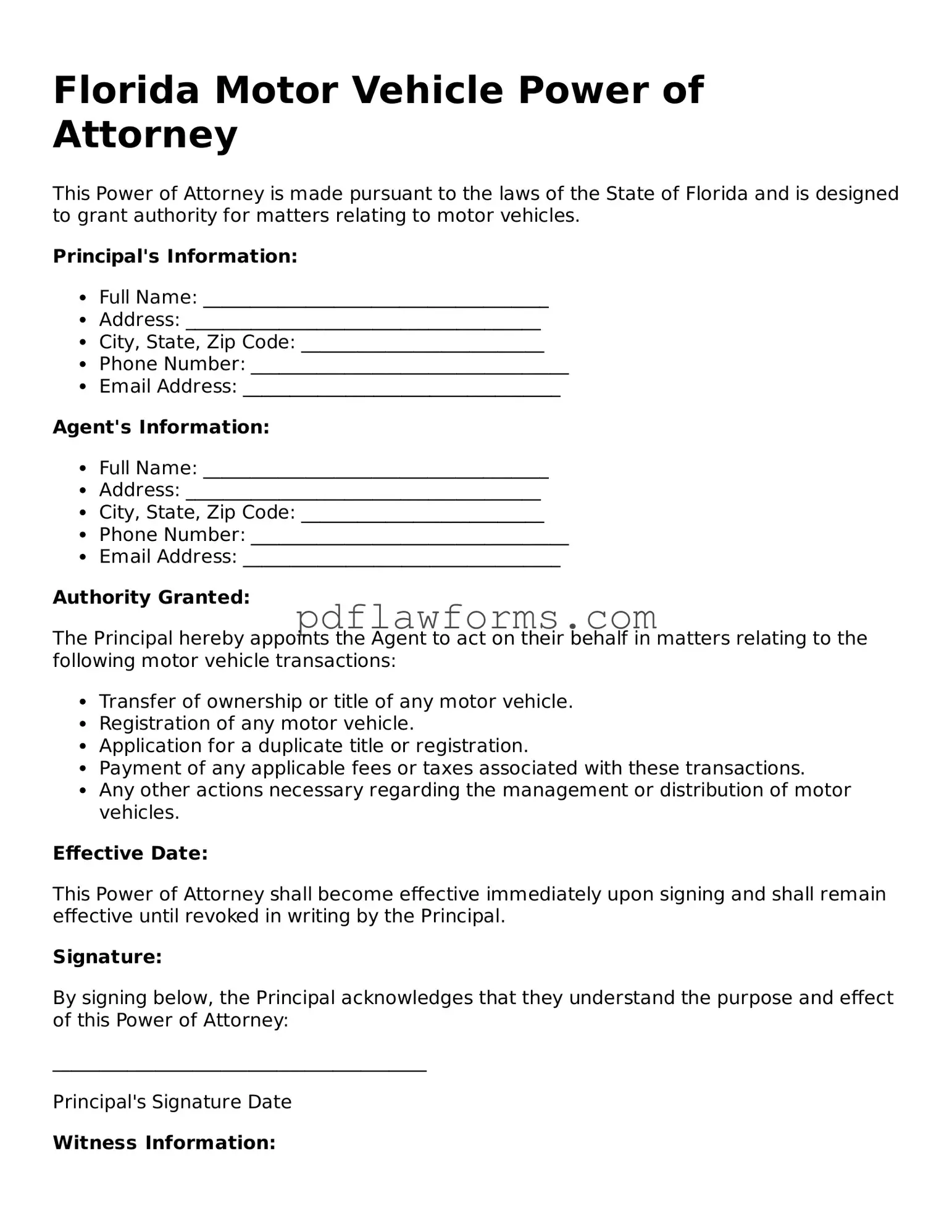Motor Vehicle Power of Attorney Form for the State of Florida
The Florida Motor Vehicle Power of Attorney form is a legal document that allows an individual, known as the principal, to designate another person, called the agent, to handle specific vehicle-related transactions on their behalf. This form is particularly useful for those who may be unable to attend to these matters in person, ensuring that their vehicle transactions proceed smoothly. If you need to delegate authority for vehicle matters, consider filling out the form by clicking the button below.
Make My Document Online

Motor Vehicle Power of Attorney Form for the State of Florida
Make My Document Online
You’re halfway through — finish the form
Edit and complete Motor Vehicle Power of Attorney online, then download your file.
Make My Document Online
or
⇩ Motor Vehicle Power of Attorney PDF
